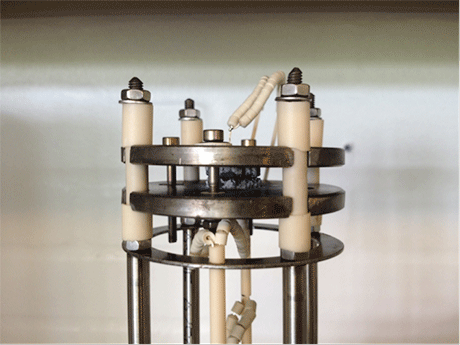In the recent approach to the clean energy systems it is required to have an effective converting engine in order to replace the existing technologies such as internal combustion engines. The combination of hydrogen as an energy carrier and fuel cells as the efficient and environmentally friendly energy conversion technology has been recognized as the most possible solution.
The most technological challenging issues for the fuel cells and the electrolysers are performance, cost and durability on an overall system level. These issues can be addressed be development of key materials and components. One of the most important components of fuel cells which defines theirs design and performance is an electrolyte. The electrolyte can be a proton conducting material. For using various types of biofuels it is very much desirable for the fuel cells and electrolysers to operate in the temperature range 200 – 400 °C. The lack of suitable ion conducting electrolytes within this temperature range has stimulated research in this area. Thus it is important to find new proton conductors for fuel cells and electrolysers in the temperature region where theirs performance happens in the most efficient way.

The PhD Project is part of The PROCON center, funded by the Danish National Research Foundation.
For further info about the project see DTU Orbit